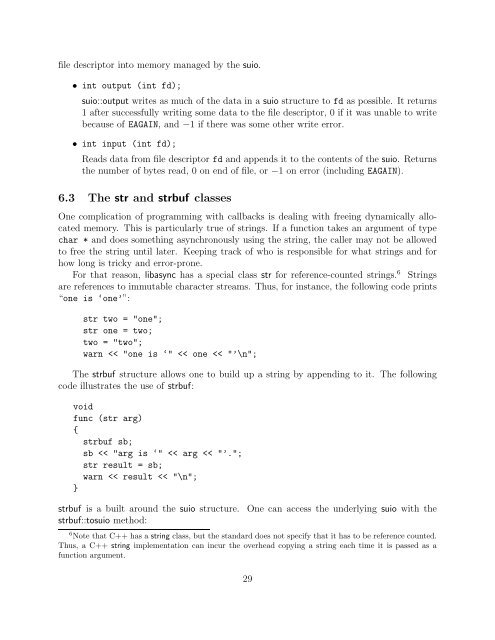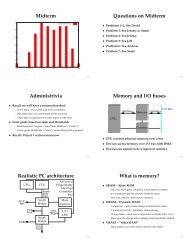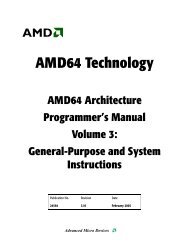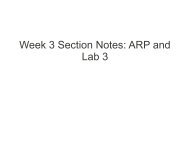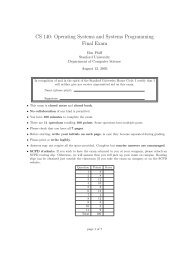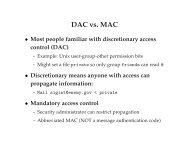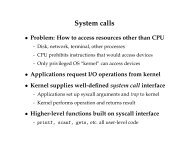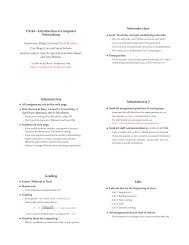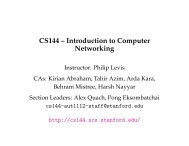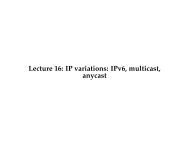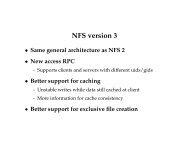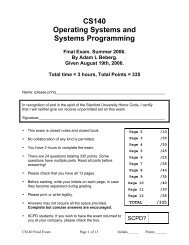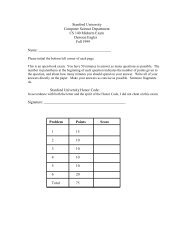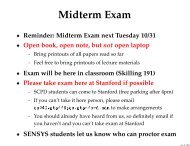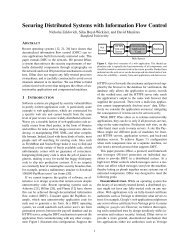Using TCP Through Sockets
Using TCP Through Sockets
Using TCP Through Sockets
Create successful ePaper yourself
Turn your PDF publications into a flip-book with our unique Google optimized e-Paper software.
file descriptor into memory managed by the suio.<br />
• int output (int fd);<br />
suio::output writes as much of the data in a suio structure to fd as possible. It returns<br />
1 after successfully writing some data to the file descriptor, 0 if it was unable to write<br />
because of EAGAIN, and −1 if there was some other write error.<br />
• int input (int fd);<br />
Reads data from file descriptor fd and appends it to the contents of the suio. Returns<br />
the number of bytes read, 0 on end of file, or −1 on error (including EAGAIN).<br />
6.3 The str and strbuf classes<br />
One complication of programming with callbacks is dealing with freeing dynamically allocated<br />
memory. This is particularly true of strings. If a function takes an argument of type<br />
char * and does something asynchronously using the string, the caller may not be allowed<br />
to free the string until later. Keeping track of who is responsible for what strings and for<br />
how long is tricky and error-prone.<br />
For that reason, libasync has a special class str for reference-counted strings. 6 Strings<br />
are references to immutable character streams. Thus, for instance, the following code prints<br />
“one is ‘one’”:<br />
str two = "one";<br />
str one = two;<br />
two = "two";<br />
warn


